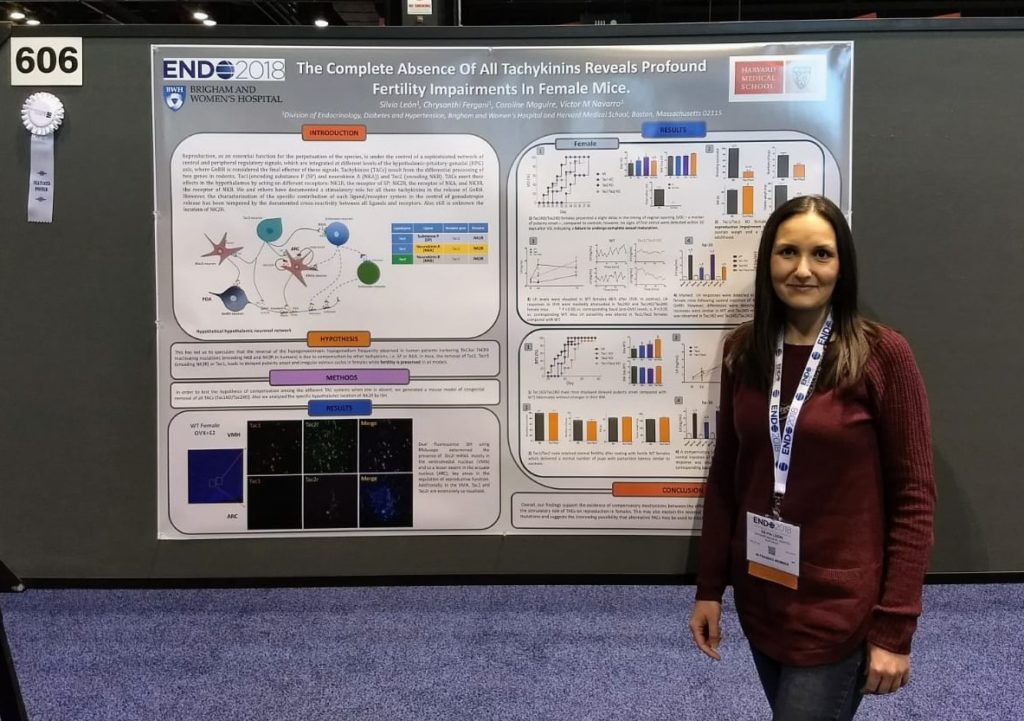The sixth IMIBIC-P2Med Fellow, Silvia León Téllez, has returned to her “home group” at IMIBIC after having spent four years at the Harvard Medical School/Brigham and Women’s Hospital – The Navarro Lab (Boston-Massachusetts, USA). She returned to Cordoba in 2019 with an MSCA-Individual Fellowship and now continues her research in the same group as IMIBIC-P2Med Fellow for one additional year, from May 2022 till April 2023.
We are thrilled to have Silvia back with all the new knowledge acquired during her postdoc years abroad. Her project perfectly complements the research activities of the host group led by Prof. Manuel Tena Sempere that focuses on the study of hormonal regulation of energy balance, puberty and reproduction.
Tac1-PCOS
Infertility and reduced fertility affect one in seven couples and are a growing challenge in reproductive medicine.
The most common cause of reduced fertility is ovulatory dysfunction, a term used to describe a number of different disorders in which ovulation fails to occur or occurs irregularly. Infertility or reduced fertility can also be caused by oligo-/anovulation (infrequent or irregular periods or impossibility to release eggs during the menstrual cycle). These are often linked to polycystic ovary syndrome (PCOS).
PCOS is a common disease that causes irregular periods, difficulty to get pregnant, weight gain, excessive hair growth, thinning hair, and acne, among other symptoms that highly impact the quality of life of women. Its exact cause is unknown, but current research suggests it is caused by a combination of genetic and environmental factors.
As a very heterogeneous condition, the diagnosis and treatment of PCOS are difficult, and there is a need to better understand the bases of the disease. Silvia’s project Tac1-PCOS aims to advance the understanding of PCOS by developing a mouse model that replicates some of the pathophysiological elements and different phenotypes of PCOS. Her research is expected to offer a substantial step forward in our understanding of the central mechanisms that govern reproductive function, and also help to identify novel therapeutic targets to improve fertility management and in vitro fertilisation treatments in PCOS patients.
Follow Silvia’s work through her group’s Twitter account @PubMetTS


